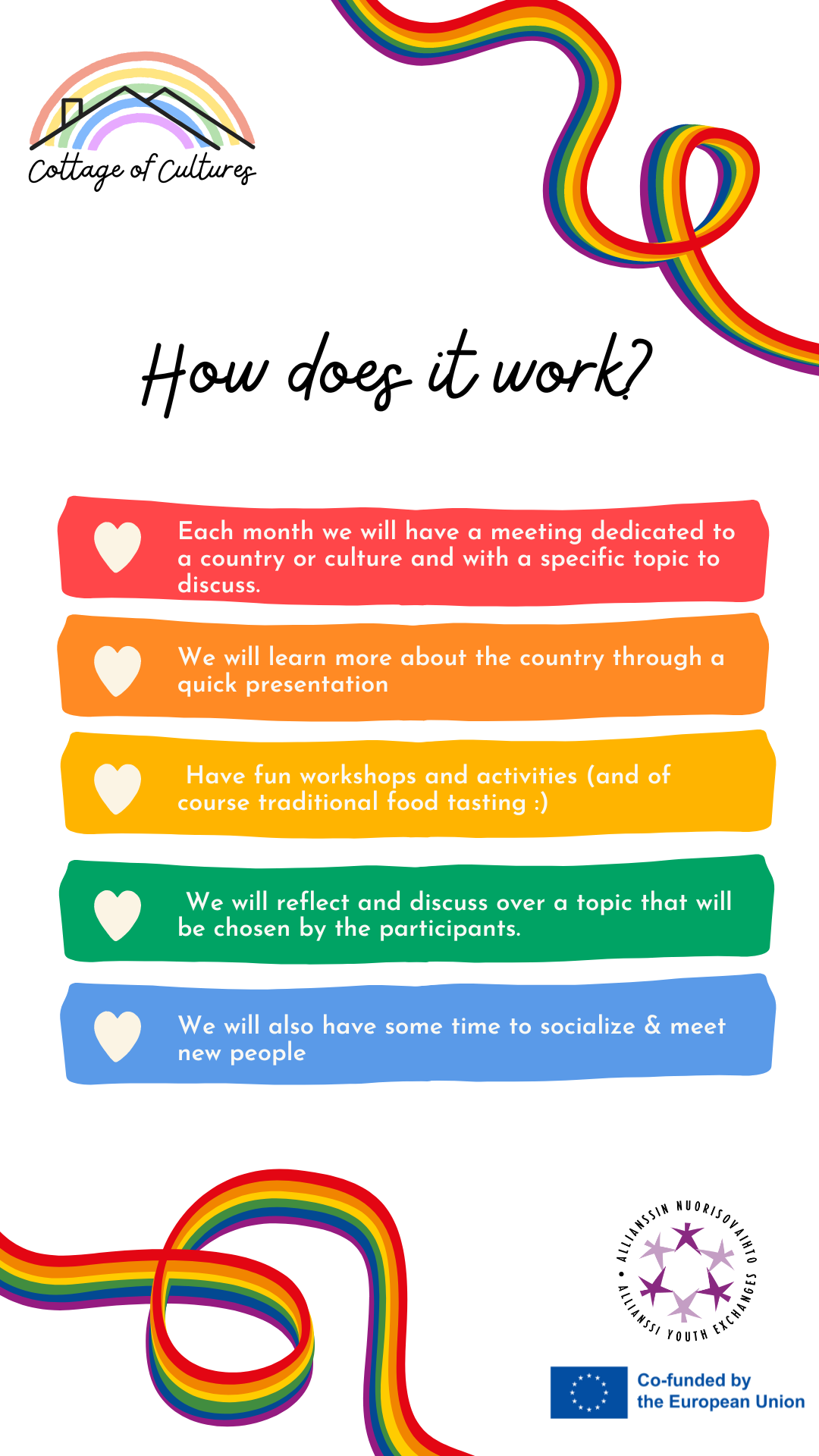Cottage of Cultures
What is a Solidarity Project?
The Cottage of Cultures is a Solidarity Project, a non-profit solidarity activity initiated, developed and implemented by young people themselves for a period from 2 to 12 months. It gives a group of minimum five young persons the chance to express solidarity by taking responsibility and committing themselves to bring positive change in their local community. The project should have a clearly identified topic which the group of young people wish to explore together and which has to be translated into the concrete daily activities of the project and involve all the members of the group. Solidarity Projects should address key challenges within the communities, where relevant including those identified jointly in the border regions and it should also present European added value. Participation in a solidarity project is an important non-formal learning experience through which young people can boost their personal, educational, social and civic development.
What is this project about?
We, as a group of international and Finnish people, identified a critical need to promote cultural exchange and interactions between foreigners and locals.
Therefore we want to establish a regular event where both foreigners and Finns can meet and take the chance to broaden their horizons and their knowledge about other cultures. Our Cottage of Cultures is a fantastic opportunity to promote diversity and interculturality, to include minorities in community life, and to bridge the gap between locals and internationals.
We want to roll up our sleeves and create a more inclusive society!
How did this project start?
The idea of the Cottage of Cultures came out when we started to organise, together with Allianssi Youth Exchanges, an event called Intercultural Evenings, where a representative of a country would organise the evening with a presentation, some food and activities specific to their country. With this type of event we saw a great need to integrate foreigners with Finnish local youth as well as share knowledge about the European countries and their cultures.
We realised that foreigners are not so well integrated in the local community so we want to create a regular event where they will have an opportunity to make friends, integrate with Finns and create bonds. As half of the people in our group are foreigners, they experienced on their own skin episodes of marginalization; this is precisely the reason why we decided to create this group including both locals and foreigners, in order to establish a deeper connection between our cultures.
How does it work?
Each month we will host a meeting of the Cottage of Cultures, everyone who's interested could participate in the event and the activities. Each meeting will be dedicated to a specific country (or culture) and it will have a specific topic to discuss. The activities will be as it follows:
- Short presentation of the country (or culture): there will be a brief presentation of the most interesting facts about the country.
- Workshop: we will learn something traditional, sush as the language, some dances, music or food.

- Discussion: there will be a moment of intercultural conversation, in which everyone will be able to share their thoughts, opinions and personal experiences regarding a specific topic. We will learn from each other how those issues are addressed in different countries, and we could take inspiration in order to take action in our own countries.
- Socialisation: at the end of the meeting we will taste some traditional food and have the change to get to know each other more.
.png)
